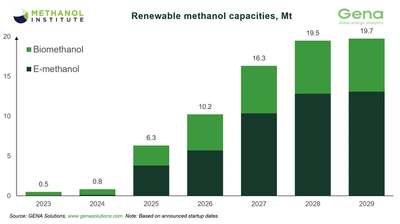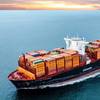European Shipowners and Fuel Producers Unite on New Fuels Availability
The recently published Draghi report on the Future of European Competitiveness identifies shipping as one of the most difficult sectors to decarbonise, requiring around 40 billion in annual investments between 2031 and 2050.
The report highlights that the EU has limited installed capacity and planned production. The EU needs to start building a supply chain for clean fuels, or the costs of meeting its targets will be significant, says the new Clean Maritime Fuels Platform, a bottom-up industry initiative aiming to enhance communication between the shipping sector and fuel producers. The group aims to identify common challenges and possible solutions, considering the implementation of the Fit for 55 package and the transition to a net-zero economy by 2050.
Representatives of the European Community of Shipowners’ Associations (ECSA), FuelsEurope, eFuel Alliance, the European Waste-based & Advanced Biofuels Association (EWABA), HydrogenEurope and Methanol Institute have already held their first meeting and agreed on the working principles of the new platform. The platform will hold regular meetings with European shipowners (ECSA) taking care of the secretariat’s tasks.
"There are numerous challenges to a swift and reliable supply of renewable marine fuels. Through a regular exchange with other industry representatives and by making concrete proposals to optimize the European regulatory framework, we aim to make immediate progress for the maritime industry and other transport sectors with this initiative,” said Ralf Diemer, Managing Director of the eFuel Alliance.
“The energy transition is a gradual journey, not an overnight change. It demands a robust regulatory framework and collaboration among all stakeholders involved to drive effective decarbonization. As we work alongside our 100 members through the complexities of this transition, the Clean Fuels Maritime Platform will play a crucial role in accelerating our shift to cleaner fuels and innovative technologies. By combining our collective expertise and efforts, we are not only tackling the pressing need for emission reductions but also laying the groundwork for a more resilient and sustainable maritime industry,” said Greg Dolan, CEO of Methanol Institute.












